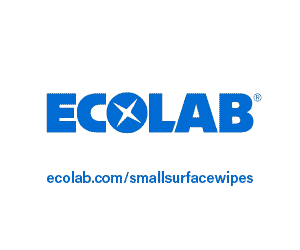bioMérieux and Illumina to co-develop sequencing solution for monitoring of bacterial infections
The first application will be an NGS epidemiological solution offered by service labs for genotyping disease agents
bioMérieux, a world leader in the field of in vitro diagnostics, has signed an exclusive agreement with leading genomics company Illumina to launch a next-generation sequencing (NGS) epidemiology solution for service labs. The two companies will jointly develop applications for microbiology sequencing technologies within a four-year renewable period.
The first application will be an NGS epidemiological solution offered by service labs for genotyping disease agents. The high resolution of NGS combined with bioMerieux’s industry-leading knowledge in microbiology will provide easily accessible and highly accurate information to communities and hospitals to track, prevent, contain and stop the spread of disease agents.
The solution will combine Illumina’s MiSeq sequencing system with a jointly developed pathogen genome database based on bioMérieux’s culture collection. This collection, which contains more than 80,000 references, constitutes one of the largest libraries of bacterial strains in the world, and will contribute to creating a database of unprecedented scope with information about virulence and microbial resistance characteristics. The service will deliver a standardised report with a genomic profile of the infectious agents, with sequence-level accuracy and depth of information.
'We are extremely pleased about this partnership with Illumina, a world leader in genomic solutions. In line with our pioneering spirit, this collaboration in epidemiology will allow us to provide an innovative solution within hospital settings for sequencing bacteria. It is particularly suited to the growing need to combat infectious diseases, one of the major global public health challenges today,' said Jean-Luc Belingard, Chairman of bioMérieux.
'With this new collaboration, we will enrich our commercial offering by adding a sequencing solution dedicated to infectious diseases. Moreover, this collaboration is a first step that will enable bioMérieux to identify opportunities and fields of application that sequencing can bring to infectious disease diagnostics.'
The ultimate goal of the Illumina-bioMérieux epidemiology solution will be to enable public health and hospital microbiology laboratories to contain an epidemic, avoid transmission of infectious agents, and improve hospital practices where needed. Those facing a suspected epidemic or health crisis will be able to send the relevant isolates to a designated laboratory equipped with an Illumina sequencing system. The genetic sequences will be sent via a secure cloud platform to be analysed, using the database and software developed by bioMérieux, which will also generate a customised report for the customer. The precise results will be presented seamlessly, in an easily understandable graphical format identifying the infectious agent as well as the sequence-based genetic variations that would assist in understanding its transmission.
'This partnership combines Illumina’s internationally recognised expertise in the development of sequencing solutions with bioMérieux’s unique and extensive understanding of infectious agents,' said Jay Flatley, Chief Executive Officer of Illumina. 'We are excited by the opportunity to expand the number of NGS-based applications in the infectious disease market with a solution designed for epidemiology and hospital infection control.'




